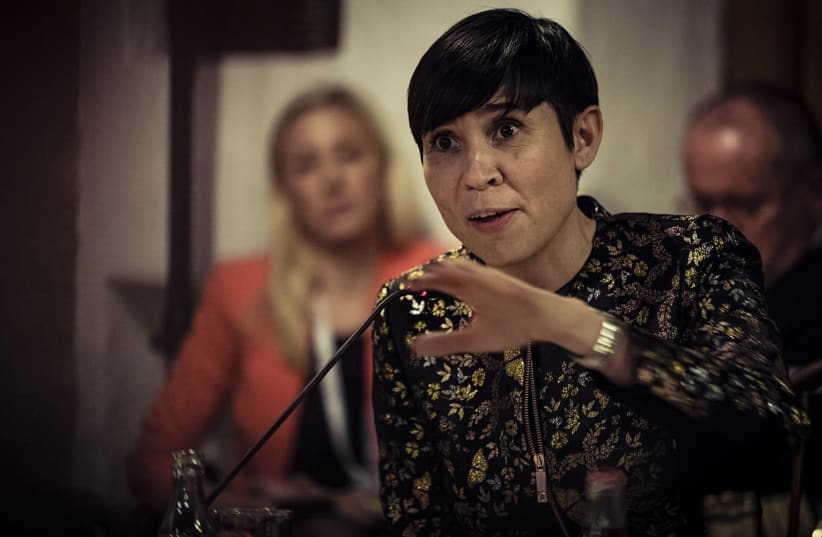"I emphasized to the meeting how important it is to resume a political process," Søreide said. "Israelis and Palestinians must negotiate a permanent peace agreement based on the formula of peace for land."She spoke at the end of a virtual international meeting to facilitate donor funding for the Palestinians, known as the Ad Hoc Liaison Committee (AHLC), which last convened in June.
The 15-member AHLC chaired by Norway, is unique in that it includes representation by both Israel and the Palestinian Authority.
PA Prime Minister Mohammad Shtayyeh and Finance Minister Shukri Bishara participated in Tuesday's meeting, as did Haim Regev of Israel's Foreign Ministry and US Deputy Assistant Secretary of State Hady Amr. European Union foreign policy chief Josep Borrell co-hosted the meeting.
"The meeting called upon both parties to create a path back to negotiations and refrain from unilateral actions that pose obstacles to the peace process and undermine the two-state solution," Søreide said.
She said that the situation on the ground had improved and provided hope that there could be some movement.
"I am cautiously optimistic after the meeting today. While the situation last year was characterized by political deadlock between Palestine and Israel, a more productive dialogue is now underway," Søreide said.
The US reengagement is important and there is a different climate, she said.
"The parties are cooperating on health, security, and economic development in Palestine. Still, there is a long way to go before a political solution to the conflict can be achieved," Søreide said.
This cooperation is important to help the Palestinians roll out a COVID-19 vaccination program, for which additional donor funding is needed, she said.
Over the last weeks there has been an increase in vaccines, and additional vaccines from COVAX will be available, she said.
"Palestinians will be among the first to receive COVAX vaccines," she said.
The meeting spoke of the budget crisis facing the PA and looked at ways to increase revenues, particularly in light of the COVID-19 pandemic, Søreide said.
The US at the meeting spoke of is intent to resume financial assistance to the Palestinians, she said.
"There is a need to increase donor support to Palestine, as payments have been low in recent years. At the same time," Søreide said.
UN Special Coordinator for the Middle East Peace Process Tor Wennesland told the AHLC that he also saw reason for hope, but added that the situation was very fragile.
"The COVID-situation far from being under control, and some serious fiscal issues still to be resolved, the next three to four months will require careful maneuvering to avoid any destabilization. Without increased and fast donor support and a gradual restart of the economy, the PA will have little capacity to cushion the negative effects of the current situation," he said.
